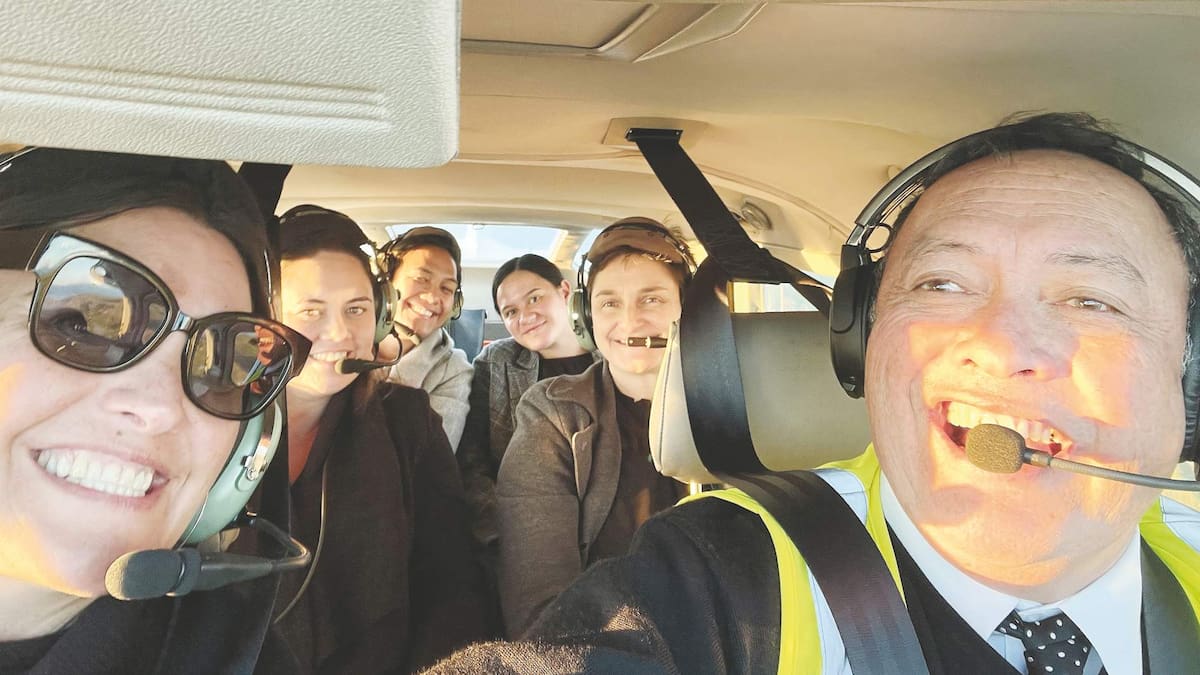Maru has had
stints in many parts of the aviation sector and is also a pioneer in the use of te reo Māori on aircraft.
Now he’s promoting use of the language in aircraft safety briefing cards.
At this week’s Aviation Industry Association (AIANZ) summit at Tākina in Wellington, Maru has been encouraging other operators to consider embracing the language more.
Air Ruatoria’s bilingual safety briefing cards. Photo / John Weekes
No matter what politicians say, Maru is adamant more Kiwis from all races want to learn te reo.
“Te reo Māori is part of who we are. There’s a genuine willingness with Kiwis to speak te reo. I see younger generations embracing te ao Māori [the Māori world].”
His bilingual safety briefing is no gimmick.
Many people in and around the East Coast are fluent in te reo.
Besides, numerous other public transport operators have bilingual safety briefings.
“Kahu kautere” is lifejacket and “putanga ohorere” means “emergency exit”.
As for the signs reminding you not to smoke, well, they’re a universal language.
Maru said te reo was unique to this country and could enrich people’s lives.
“It’s not my language. It’s our language.”
Pilot’s journey
There has been much talk at this week’s aviation summit about attracting school leavers and other young people to the sector.
But concerns have also been raised about student loan debt and skills shortages.
So, some 40 years after first becoming a pilot, would Maru recommend it to youngsters?
“Absolutely. Pilot’s just one option.”
He said aviation offered many enjoyable and rewarding career pathways.
But some regional airlines have faced a tough time lately.
“Economic conditions are tough. That’s well understood.”
He said aviation was critical for regional connectivity.
In many places, there was no rail alternative and road transport was too slow.
Maru often flew doctors, other medical professionals, business people and – especially after Cyclone Gabrielle – politicians.
He recalls why he became a pilot in the first place.
“I was a little kid in Ruatōria, on the side of the hill. I saw an aeroplane and thought … that would be me one day.”
John Weekes is a business journalist covering aviation. He has previously covered consumer affairs, crime, politics and courts.

